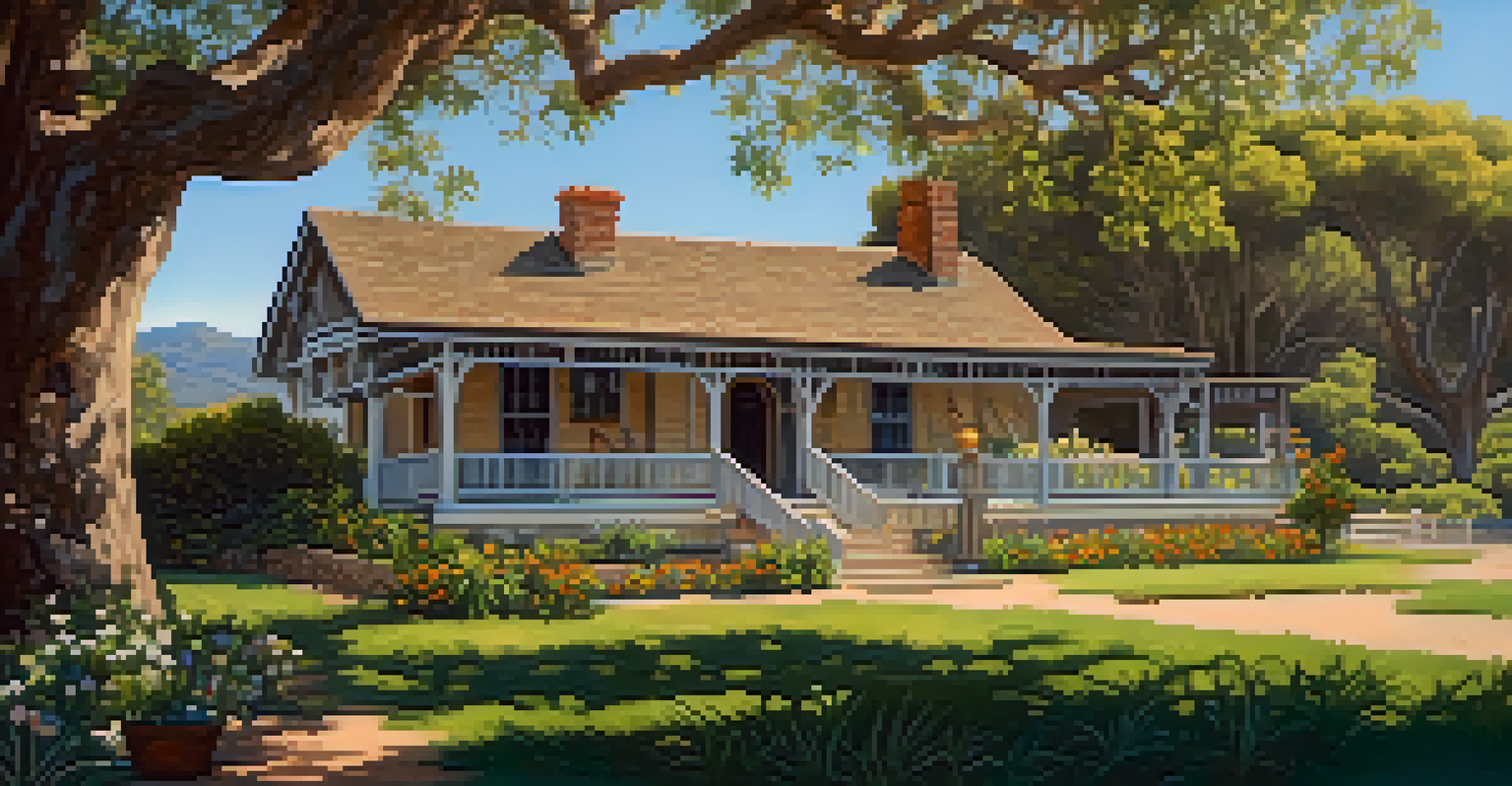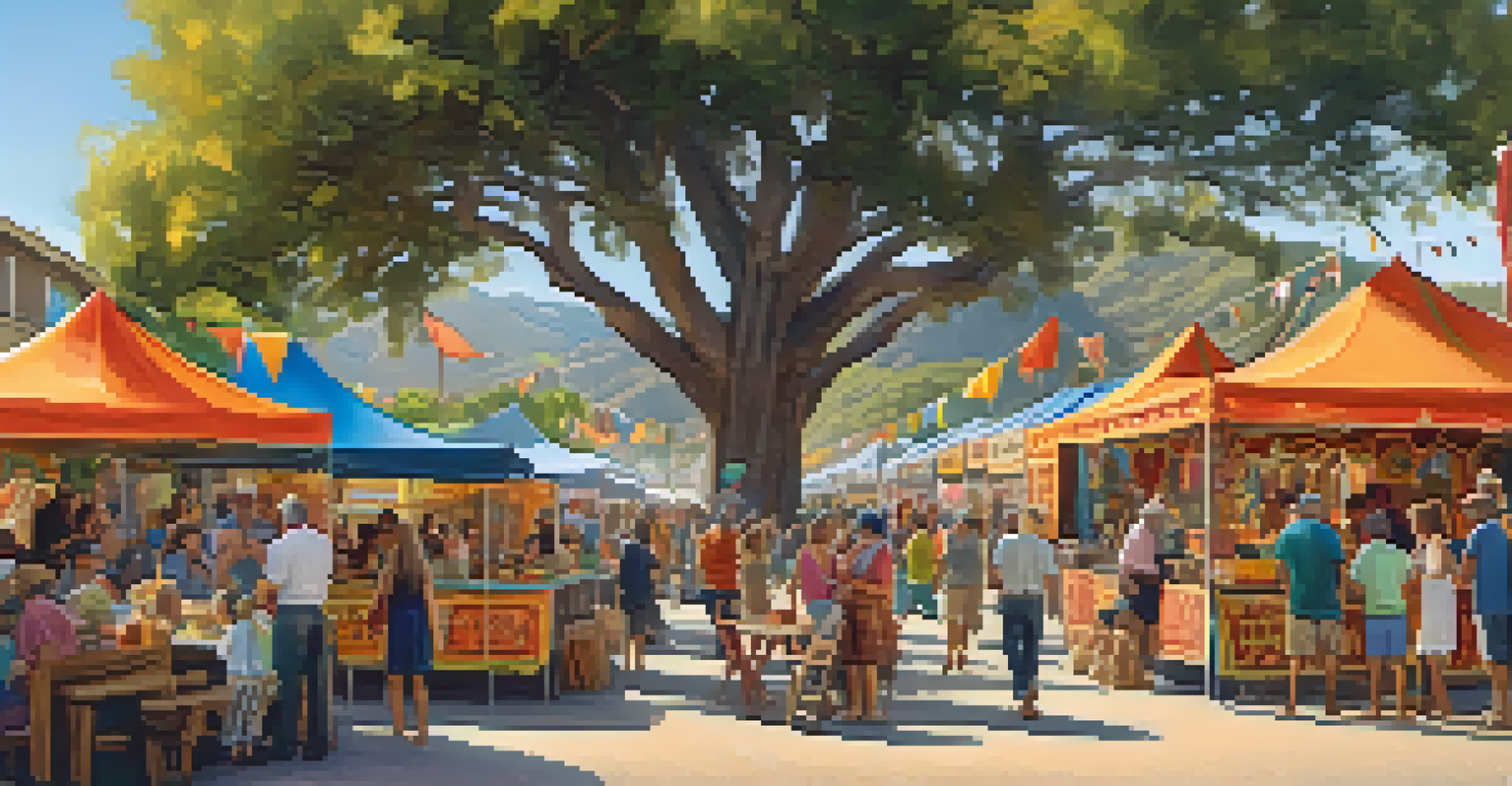The Impact of Historical Societies on Malibu's Community

Understanding Malibu’s Rich Historical Background
Malibu is not just known for its stunning beaches; it has a rich historical tapestry that dates back to the Native American Chumash people. Their culture and traditions laid the groundwork for the area’s identity. Understanding this background is essential for appreciating the community's development over time.
History is not a burden on the memory but an illumination of the soul.
As settlers arrived, Malibu witnessed the establishment of ranches and movie studios that further shaped its character. The historical societies in Malibu play a crucial role in preserving these narratives, ensuring that residents and visitors alike recognize the significance of what came before.
By learning about Malibu's past, community members can foster a deeper connection to their surroundings. This understanding helps in cultivating pride in their local culture and heritage, which is essential for a cohesive community.
Role of Historical Societies in Preservation Efforts
Historical societies in Malibu, such as the Malibu Historical Society, are pivotal in conserving local artifacts and stories. They work tirelessly to gather, document, and display items that reflect the region’s diverse history, making it accessible to everyone.

These societies also organize events and educational programs that bring history to life. For instance, guided tours and lectures offer insights into Malibu's evolution, creating a sense of continuity and belonging among residents.
Malibu's Rich Historical Tapestry
Malibu's identity is deeply rooted in its history, beginning with the Native American Chumash culture and evolving through the establishment of ranches and movie studios.
Moreover, by preserving historical sites, these organizations ensure that future generations can experience and learn from Malibu's rich past. This commitment to preservation fosters community engagement and a shared responsibility towards their heritage.
Community Engagement Through Historical Events
One of the most engaging ways historical societies impact Malibu is through community events. Annual celebrations, like historical fairs, invite residents to partake in the storytelling of their past. These gatherings not only entertain but also educate attendees of all ages.
The past is never dead. It's not even past.
Workshops and presentations led by local historians encourage community involvement and spark interest in history. When residents participate in these events, they often discover new aspects of their community they never knew existed.
These interactions create bonds among community members, reinforcing a shared identity rooted in history. As people come together to celebrate their heritage, they strengthen their ties to one another and to Malibu itself.
Influence on Local Education and Curriculum
Historical societies significantly influence local education by working with schools to integrate local history into the curriculum. By collaborating with educators, they help develop programs that teach students about Malibu’s past in a way that is engaging and relatable.
Field trips to historical sites allow students to experience history firsthand, making lessons more impactful. This hands-on approach not only enriches learning but also instills a sense of pride in their community’s heritage.
Community Events Foster Engagement
Historical societies enhance community bonds through engaging events that educate residents about their shared past.
As students become more aware of their local history, they are more likely to engage in community activities and discussions. This educational foundation helps cultivate a generation that values its roots and contributes positively to the community.
Strengthening Community Identity Through History
The work of historical societies helps forge a stronger community identity in Malibu. By promoting local history, residents develop a sense of belonging and pride in their unique heritage. This identity is essential for fostering unity among diverse groups within the community.
Historical narratives often become the glue that binds people together, creating shared experiences and memories. As residents learn about their collective past, they find common ground that transcends individual differences.
Ultimately, this strengthened identity can lead to increased community participation. When people feel connected to their history, they are more likely to engage in local initiatives, volunteer, and support their neighbors.
Preservation of Local Landmarks and Heritage Sites
Malibu's historical societies play a crucial role in advocating for the preservation of local landmarks and heritage sites. By raising awareness about the significance of these places, they help protect them from development and neglect. This advocacy is vital in maintaining the character and charm of the community.
When historic sites are preserved, they serve as tangible connections to the past. They provide context for understanding the evolution of Malibu and its communities, allowing residents and visitors to appreciate the area’s uniqueness.
Preserving Heritage for Future Generations
The preservation of local landmarks by historical societies is crucial for maintaining Malibu's unique character and educating future generations.
Moreover, preserved landmarks can become focal points for community activities and tourism. They offer opportunities for economic development while enhancing the cultural landscape of Malibu.
The Future of Historical Societies in Malibu
As Malibu continues to grow and change, the role of historical societies becomes even more critical. They face the challenge of preserving the past while adapting to modern influences. Embracing new technology and methods of storytelling can ensure that history remains relevant to younger generations.
Future initiatives may include digital archives and virtual tours, making history accessible to a broader audience. This adaptability will help attract new members and engage the community in innovative ways.

Ultimately, the future of historical societies in Malibu hinges on their ability to connect the past with the present. By fostering this relationship, they can ensure that history continues to play a vital role in shaping the identity of Malibu.